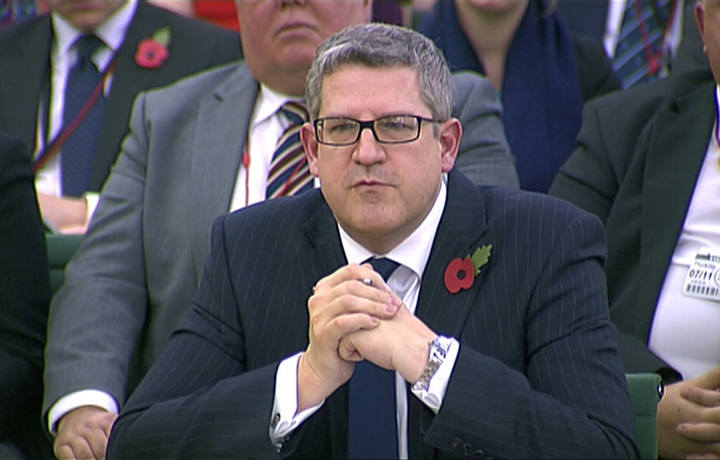Russia is pushing its foreign policy in increasingly aggressive ways including cyber-attacks and espionage, posing a growing threat to Britain and the rest of Europe, the head of Britain’s internal intelligence agency MI5 has said.

Andrew Parker said Russia had been a covert threat for decades, but what differed now from the Cold War era was that there were more and more methods available for it to pursue its anti-Western agenda.
READ MORE: Czech police arrest Russian hacker wanted by U.S. for suspected cyber-attack
“Russia increasingly seems to define itself by opposition to the West and seems to act accordingly,” he told the Guardian newspaper in an interview published on Tuesday.
“It is using its whole range of state organs and powers to push its foreign policy abroad in increasingly aggressive ways, involving propaganda, espionage, subversion and cyber-attacks. Russia is at work across Europe and in the UK today.”
WATCH: Is Canada ready for a cyber attack?

Parker’s interview coincided with a British government announcement on plans to invest an extra 1.9 billion pounds ($2.3 billion) in cyber security defences.

Get daily National news
Already strained by the case of Alexander Litvinenko, a former KGB agent murdered in London in 2006, relations between Britain and Russia have further deteriorated over Moscow’s actions in Ukraine and Syria.
Parker said the targets of Russia’s covert activities in Britain included military secrets, industrial projects, economic information and government and foreign policy.
READ MORE: Donald Trump campaign linked to Russia email hacking, says Clinton campaign chair
On Islamic extremism, Parker said Britain’s security services had foiled 12 attack plots in the past three years, but that the threat would endure for at least a generation.
“That sort of tempo of terrorist plots and attempts is concerning and it’s enduring. Attacks in this country are higher than I have experienced in the rest of my career, and I’ve been working at MI5 for 33 years,” he said.
“The reality is that because of the investment in services like mine, the UK has got good defences. My expectation is that we will find and stop most attempts at terrorism in this country.”
The threat level is officially set at “severe”, meaning an attack is considered highly likely.
READ MORE: Former Canadian ambassador to Russia calls the Okanagan home
Parker broke down the threat into three components: homegrown extremists numbering about 3,000, Islamic State militants in Syria and Iraq trying to incite plots against Britain, and online propaganda by IS and other extremist groups.
He added: “This is something we have to understand: it’s here to stay. It is an enduring threat and it’s at least a generational challenge for us to deal with.”
- Trump says Kennedy Center to be closed for 2-year renovation project
- Judge orders 5-year-old Liam Conejo Ramos and his dad released from ICE detention
- Earliest launch date for Artemis II set for Feb. 8 after cold weather delay: NASA
- Jeffrey Epstein denied permission to visit Canada in 2018, documents show







Comments